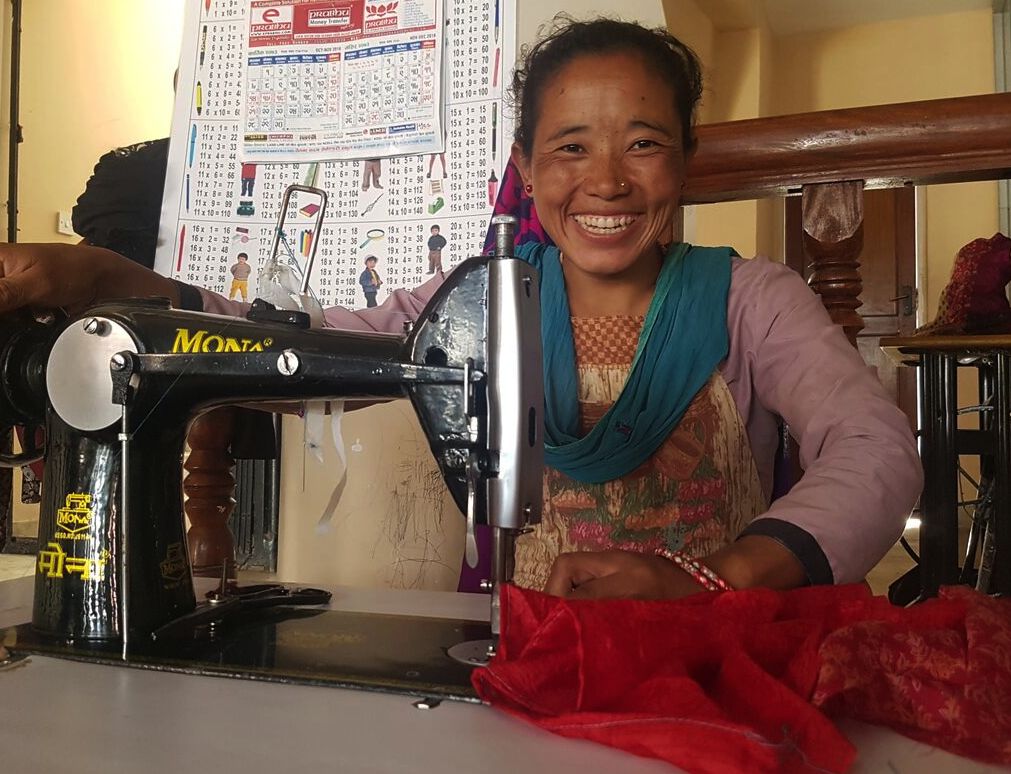
The challenging reality
The first Sustainable Development Goal aims to end extreme poverty everywhere by improving the access of the most vulnerable members of society to economic opportunities.
Nepal is one of the poorest countries in Asia and at least 22% of its population still lives under the poverty line. Within Nepal, disabled and other socially marginalised women are amongst some of the most disadvantaged social groups, and are often excluded from training and employment opportunities. When disabled women are employed, they are often paid less than their able-bodied peers.
Poverty refers to more than just economic disadvantage and also encompasses lack of education and social discrimination. In this regard, it is highly relevant that disabled people in Nepal often lack access to education and experience social stigma, due to the belief that they are cursed because of sins that they supposedly committed in past lives.
Making a difference on the ground
Seven Women has directly addressed this situation by providing training, education and employment to over 5, 500 marginalised women in the last eleven years. Our operations and social enterprises have provided women with stable and equitable income streams, as well as endowing them with the necessary skills to secure jobs and start their own ventures in the outside community.
Economically empowering disabled women has also had the effect of lessening the social stigma that they face. The money brought in by wage earning women has also had significant flow on effects which have benefited local communities.
In the 21st century, nobody should have to endure poverty. With your help, we can continue to expand our mission.
Learn more about Seven Women by joining us on April 30th @ 7 pm for a film screening of "Bringing the Light - The Story of Seven Women".
